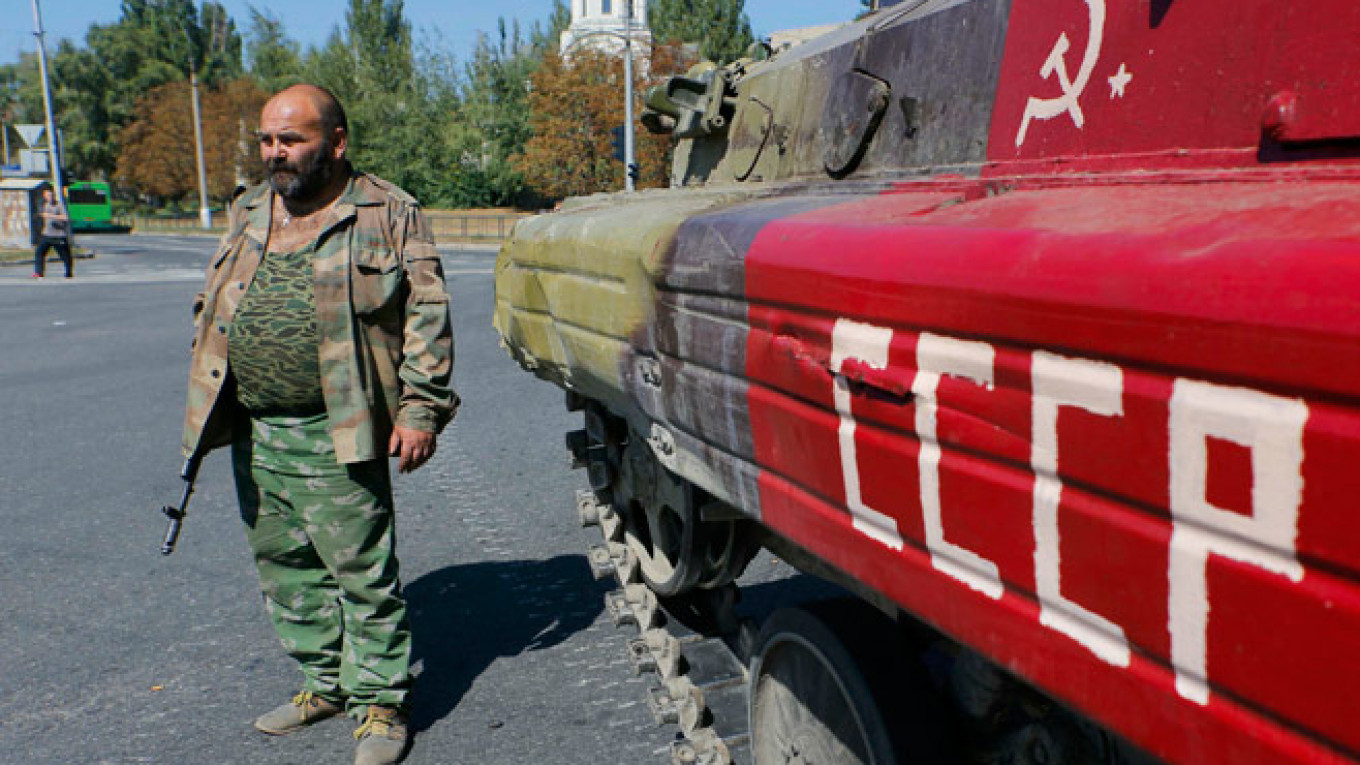What can an economics columnist write about during wartime? Economics, of course. Russia remains one of the most militarized countries in the world. According to the World Bank, Russia ranks eighth for the share of gross domestic product devoted to military spending and 10th for those outlays as per capita expenses.
According to Expert online magazine columnist Sergei Zhuravlyov, the countries spending even more on defense include the U.S., the United Arab Emirates, Qatar, the not-so-rich oil exporting states of Azerbaijan and Algeria, as well as Israel and South Sudan — both engaged in ongoing fighting. It is not for an economist to say whether this or that country should spend a great deal on defense, but this economist does have something to say on the subject in general.
First, it is a myth that increased military spending boosts the national economy. True, it might help under certain, specific conditions, but those conditions do not exist in today's Russia. Second, no convincing evidence exists that military expenditures contribute to growth by spurring development of civilian technologies.
The costs of military spending are obvious: Resources that the authorities could spend improving the standard of living are instead diverted elsewhere.
So when can military spending actually help the economy? Generally speaking, it can help a country with high unemployment and unused manufacturing capacity — as the U.S. had in the 1930s during the Great Depression.
In that case, increased government spending had a doubly positive effect by creating jobs and paying salaries that, in turn, increased the aggregate demand in the economy. And why was military spending especially beneficial? Without going into too much detail about the functioning of U.S. democracy, it is enough to say that it is no easy task for the U.S. government to obtain money for the things it needs.
World War II gave the government an excuse to sharply increase spending at the very moment it was needed most.
Does that experience hold relevance to Russia's current situation? No, it does not. Russia has very low unemployment, and its factories are already operating near capacity.
But does military spending help growth by developing new technologies? In theory, something developed to meet the highest priority demand for military use can later find application in everyday life in the form of new and more useful consumer products. Unfortunately, what works in theory does not always work in practice.
The Soviet Union managed to develop and manufacture new weapons only because it maintained a standard of living for its people that was — and has remained for 100 years — three times lower than per capita wealth in the U.S.
And did any of those new technologies find widespread use in everyday life? No, not one.
Does the same rule apply in the U.S.? Weren't computers and the Internet first created with Pentagon grant money? In fact, the causal relationship runs in the opposite direction there.
Breakthrough research requires enormous sums, and the U.S. government provided them, justifying the expense as necessary for national defense — something over which ordinary citizens rarely quibble.
Konstantin Sonin, a columnist for Vedomosti, is professor of economics and vice rector at the Higher School of Economics in Moscow.
A Message from The Moscow Times:
Dear readers,
We are facing unprecedented challenges. Russia's Prosecutor General's Office has designated The Moscow Times as an "undesirable" organization, criminalizing our work and putting our staff at risk of prosecution. This follows our earlier unjust labeling as a "foreign agent."
These actions are direct attempts to silence independent journalism in Russia. The authorities claim our work "discredits the decisions of the Russian leadership." We see things differently: we strive to provide accurate, unbiased reporting on Russia.
We, the journalists of The Moscow Times, refuse to be silenced. But to continue our work, we need your help.
Your support, no matter how small, makes a world of difference. If you can, please support us monthly starting from just $2. It's quick to set up, and every contribution makes a significant impact.
By supporting The Moscow Times, you're defending open, independent journalism in the face of repression. Thank you for standing with us.
Remind me later.






